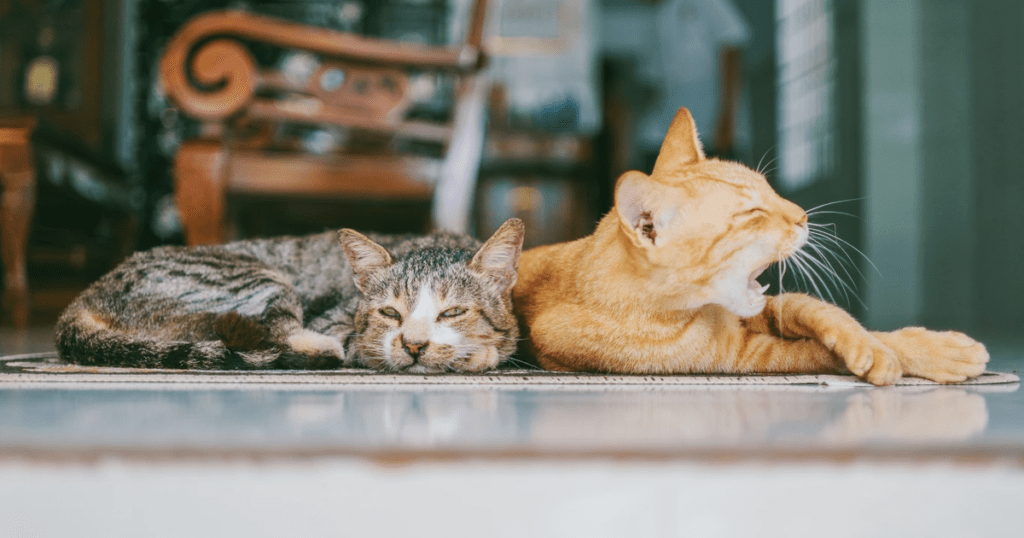Yes, it’s true! Cats are known for their impressive ability to rest a significant portion of their life. A domestic cat can sleep anywhere from 12 to 16 hours a day. Incredibly, this equates to about 75% of their life, an astonishing amount compared to humans. But why do cats sleep so much? The answer lies in their biology, evolution, and instincts.
Why Cats Sleep So Much
Cats are crepuscular animals, which are most active during dawn and dusk. Their ancestors were hunters, and sleeping for long stretches helped conserve energy for hunting and survival. Even though your household cat may no longer need to hunt for food, these instincts persist, leading to their extended sleeping hours.
Another reason is that cats are predators by nature. In the wild, hunting requires intense bursts of energy. So, cats rest and sleep to recharge for those moments of high energy, even if the most action your cat gets is chasing a toy across the living room.
Different Stages of Cat Sleep
Like humans, cats experience both deep sleep and lighter, REM (rapid eye movement) sleep. Interestingly, the REM phase is when cats are likely dreaming. Their paws might twitch, or their whiskers might move, hinting that your feline friend is off in a dream world, perhaps chasing a bird or exploring new terrain.
Cats spend most of their sleep in a light, dozing state. This makes them easily roused by surrounding sounds or movement, which is a survival mechanism rooted in their predator-prey history. Even though domestic cats no longer have to fear predators, their bodies remain wired to be alert when necessary.
Also Read: Keto Gummies: 5 Benefits You Need to Know for Weight Loss and Energy
Sleep Patterns Vary by Age and Health
Kittens and older cats tend to sleep more than young adult cats. Kittens are in the developmental phase, so they need a lot of rest to support growth. Similarly, older cats may require more sleep to recover from daily activities. However, if your cat is suddenly sleeping more than usual, it might be time to visit a vet, as excessive sleep can sometimes be a sign of underlying health issues.
The Influence of Diet on Sleep
A cat’s diet can also influence its sleep patterns. Cats that are well-fed and comfortable tend to sleep more, especially after a meal. This is because digesting food makes them feel drowsy, much like how humans feel after a big meal. Feeding your cat a healthy and balanced diet not only supports their overall health but may also contribute to their sleep patterns.
How Much Sleep Is Too Much?
While it’s normal for cats to sleep up to 16 hours a day, excessive sleep can be a concern if accompanied by other symptoms like lethargy, loss of appetite, or behavior changes. If your cat is sleeping even more than usual and seems less interested in play or social interaction, it’s important to consult your veterinarian to rule out potential health issues.
How to Ensure Your Cat Gets Quality Sleep
Cats enjoy having a safe, quiet, and cozy place to sleep. Offering them a comfortable bed or a quiet corner where they can rest undisturbed can enhance their sleep quality. Cats are territorial creatures, and having a designated space to rest can also help reduce stress. Adding soft blankets or providing high perches for them to nap on can mimic their natural tendencies to find a secure and elevated spot.
Conclusion
Understanding why cats spend 75% of their life sleeping helps us appreciate the natural instincts and needs of our feline companions. While their lengthy naps might seem excessive, it’s part of their evolutionary makeup, ensuring they are ready for bursts of activity and play. By providing a comfortable environment and paying attention to changes in sleep patterns, you can help ensure your cat enjoys restful and healthy sleep.
FAQs
Do all cats sleep 75% of the time?
Most domestic cats sleep between 12 to 16 hours a day, which roughly equates to 70-75% of their life. However, factors such as age, health, and lifestyle can affect individual sleep patterns.
Do cats sleep more in the winter?
Yes, cats may sleep more during colder months as they conserve energy and seek warmth. This behavior is similar to other animals that reduce activity in winter.
Is it normal for my cat to be active at night?
Yes, cats are naturally more active at night and early morning due to their crepuscular nature. Providing them with interactive toys during the day can help manage nighttime activity.
Can cats dream?
Yes, cats do dream, especially during their REM sleep phase. You may notice your cat twitching or moving in its sleep, which is an indication of dreaming.
Is my cat’s sleeping position important?
Yes, a cat’s sleeping position can reveal its mood and comfort level. Cats that sleep curled up are often conserving heat, while those sleeping stretched out are comfortable and relaxed.
Should I wake my cat up if they sleep too much?
It’s generally best to let your cat sleep undisturbed. However, if you notice unusual behavior, such as extreme lethargy, it may be worth consulting your veterinarian.



